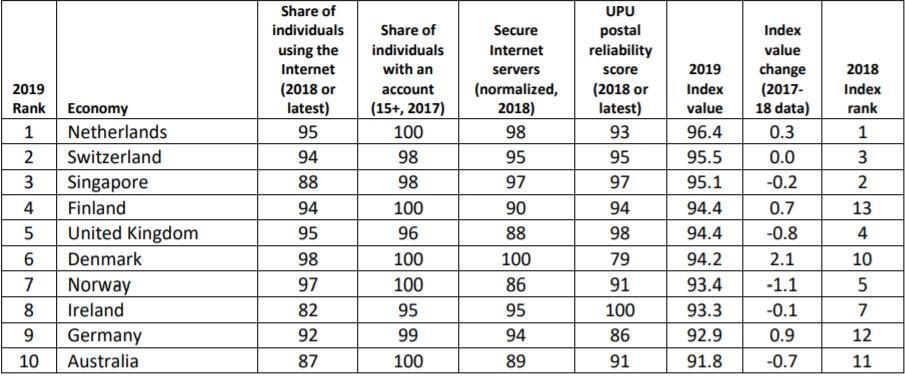Singapore came in third while India ranked 73rd out of 152 countries in a United Nations (UN) business-to-consumer (B2C) e-commerce index that measures an economy's preparedness to support online shopping.
The United Nations Conference on Trade and Development's (UNCTAD’s) B2C E-commerce Index 2019 has been topped by the Netherlands for the second consecutive year. European nations hold eight of the top 10 spots in the index.
India slightly improved its position from 80 in 2018 and 83 in 2017.
The index scores countries on the access to secure internet servers, the reliability of postal services and infrastructure, and the portion of their population that uses the internet and has an account with a financial institution or mobile-money-service provider.
According to the report, in India, internet shoppers as a share of Internet users was 11 per cent and internet shoppers as a share of the population 3 per cent in 2017. In 2018, the share of individuals using the internet in the nation was 34 per cent of the population.
For Singapore, the share of individuals using the internet was 88 per cent, while 72 per cent of internet users shopped online (63 per cent of the city-state’s population) in 2018.
"Our B2C index shows how real and worrying the digital gap is between developed and developing countries," Director of UNCTAD's unit that prepared the annual index Shamika Sirimanne said.
In half a dozen European nations, more than 80% of internet users make purchases online. But that proportion is below 10% in most low and lower middle-income countries.
The report highlighted the gap in the e-commerce markets between developing and under-developed countries, with the top 10 highest scores among developing nations, all from Asia, classified as high-income or upper middle-income economies. At the other end of the spectrum, least developed countries occupied 18 of the 20 bottom positions.




